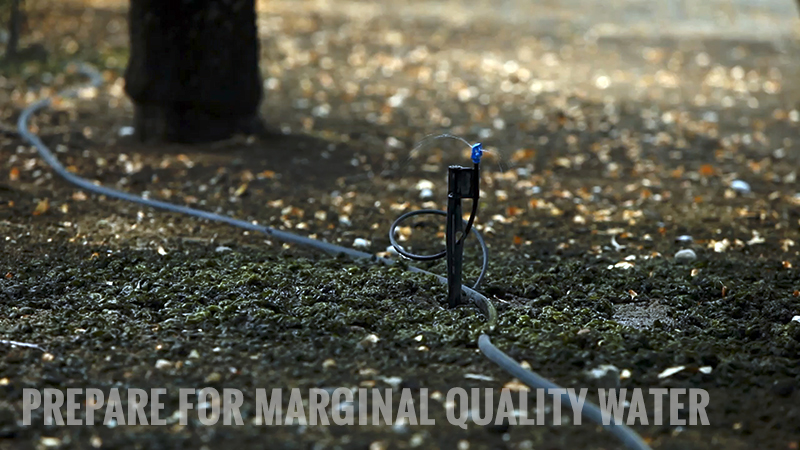Potato Pointers: Surfin’ USA
We’ve all heard the term and we’ve all used it. Love it or loathe it, the latest rage in all things agricultural is “sustainability.” As the concept gains momentum, we all wrestle with what the terminology actually means and where it might take us. Does it mean that we have to settle for some upper limit on yields? Will we have to tolerate more disease, more insects, more weeds? No one seems to know for sure. One thing is certain: Sustainability will not be a static process.
In many ways, striving for sustainability may not be all that different from what we’re currently doing. Pesticide resistance management strategies, for instance, will be a vital part of any sustainability program and almost all producers practice them in some form or another already. Fertility programs based on the nutrients already available and taking into account the varying needs of the plant as the season progresses are also common practice. We may have to get even more aggressive in our approach to using these important tools, but we don’t necessarily need to reinvent the wheel.
A New Mindset
There will probably need to be some important changes in attitude, however. We may be required to change our mindset from “Will this practice give me maximum yield?” to “Will this practice give me maximum profit?” all in the context of “Will I be able to do this next year, and in the years to come?” Some immediate benefits may be derived from relatively simple changes. Most studies that I’ve seen show benefits when longer rotations are practiced. Could we find ways to make this happen?
At the risk of sounding a bit cryptic, change is a constant. We see it on an almost daily basis from easily demonstrated concepts, like pesticide resistance, to far more difficult and controversial issues like “climate change.” The latter concept usually elicits a strong emotional response. It may be that we don’t understand all the causes and cures well enough to implement effective control measures, but any sustainability program we implement over the next
decade or so will almost certainly have to take this concept into account. For many people, concern for the environment is paramount. Whether you believe in the concept of climate change or not, it is likely that it will color many decisions in the future.
Supply And Demand
Another thing to keep in mind is that those of us in agriculture need to take steps to make sure that supply and demand are in sync. Selling potatoes, or any crop, below what it costs you to produce it, or having to dispose of the crop outright — due to overproduction — is not a sustainable practice. Growers have known this for a long time, but organizations like the United Potato Growers, to name just one, are perfecting ways to do something about it.
As I mulled over the concept of sustainability, it occurred to me that a grower in the future will be like a surfer going out to catch a wave and ride it back toward shore. Doing it properly requires knowledge and experience, plus a delicate sense of balance. A more sinister image is that of a skier trying to stay ahead of an avalanche, but I think I like the surfing simile better — the consequences of failure are far less likely to be fatal and you get more than one chance at success.
So sustainability will be a constant effort to remain balanced on the sweet part of the wave, and achieving it will require the coordinated efforts of all facets of agriculture. We will need to sharpen up on some of the effective things we’re already doing and come up with new techniques to meet the challenges of the future.
Come on in, America, surf’s up!










